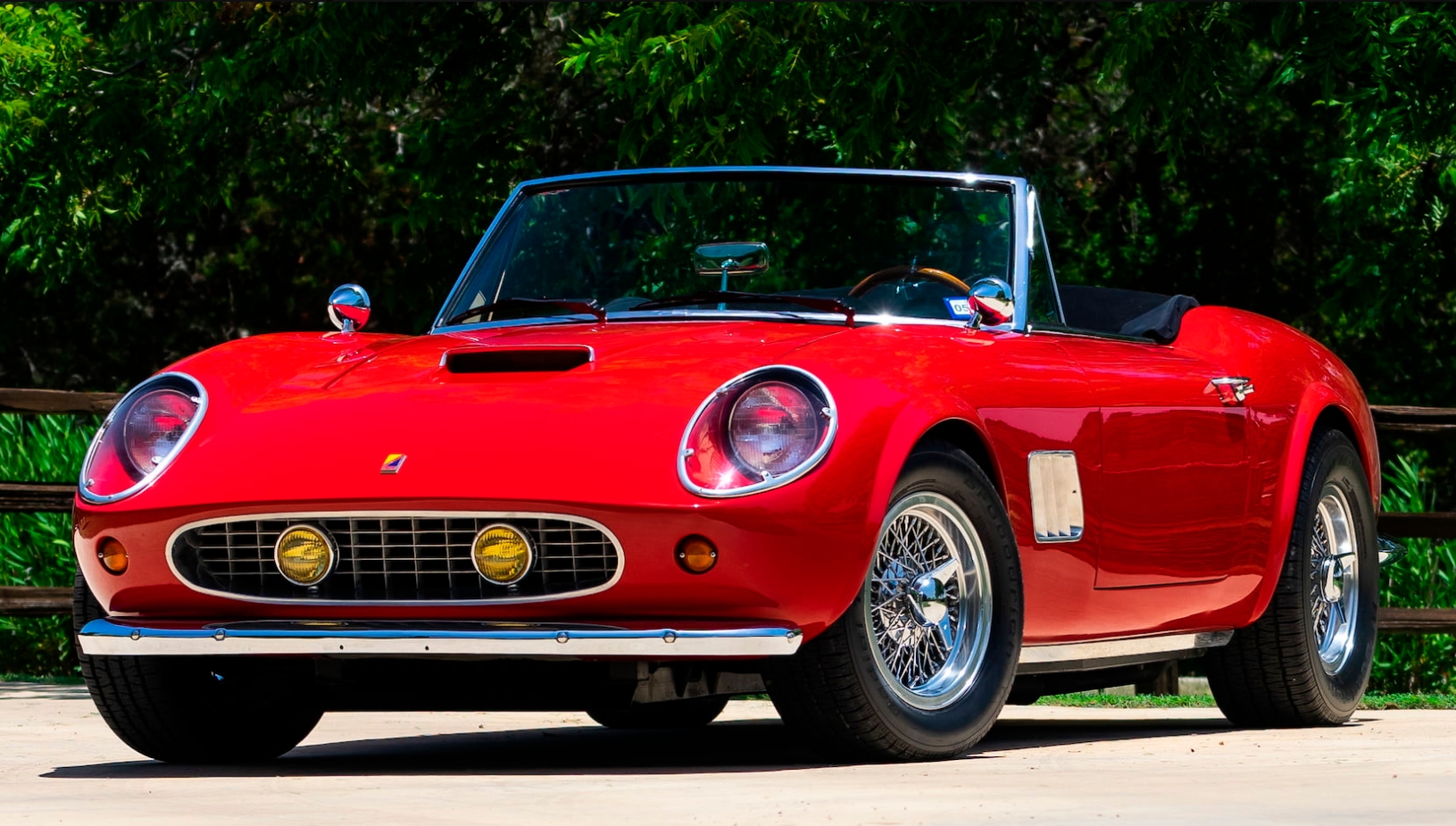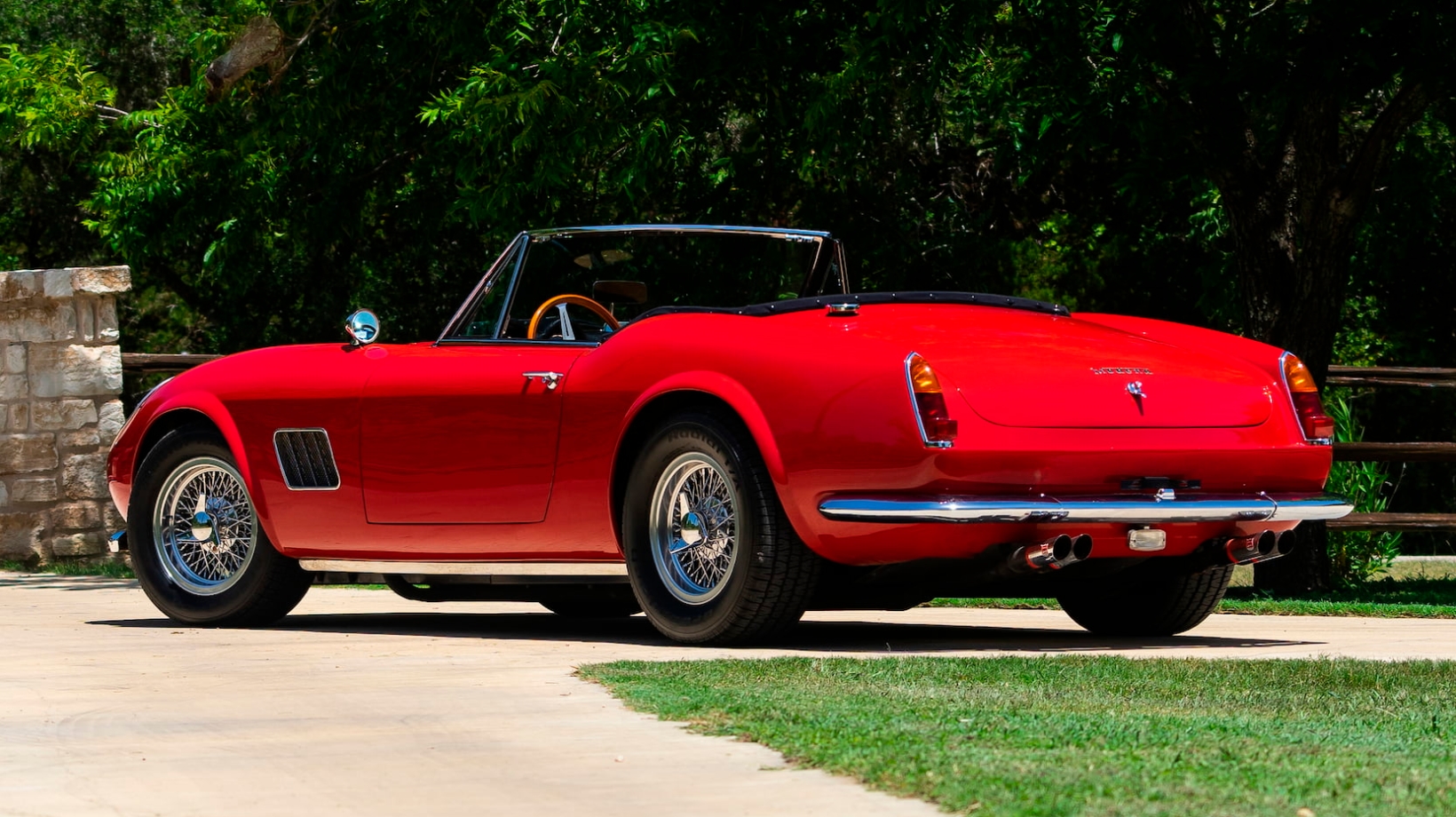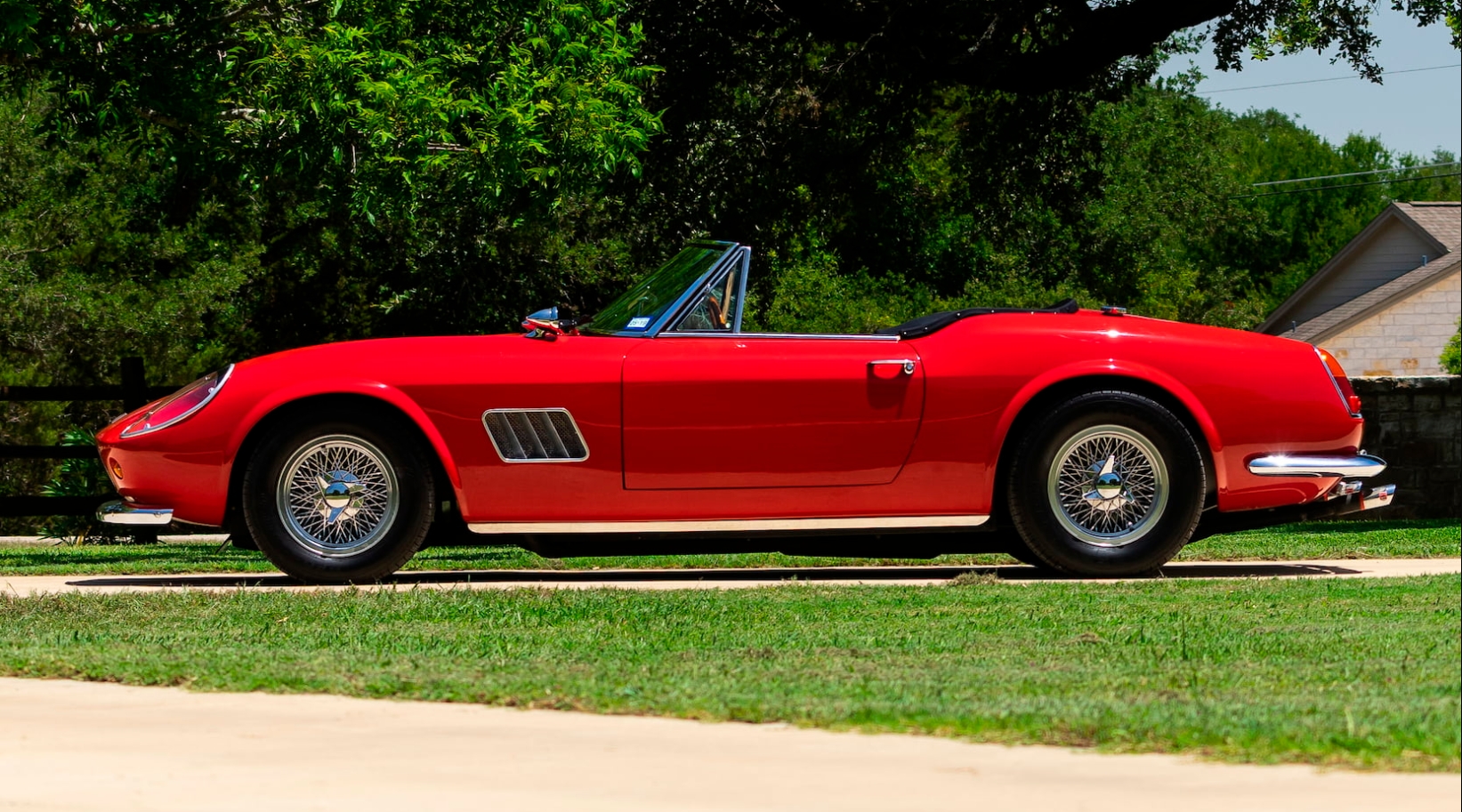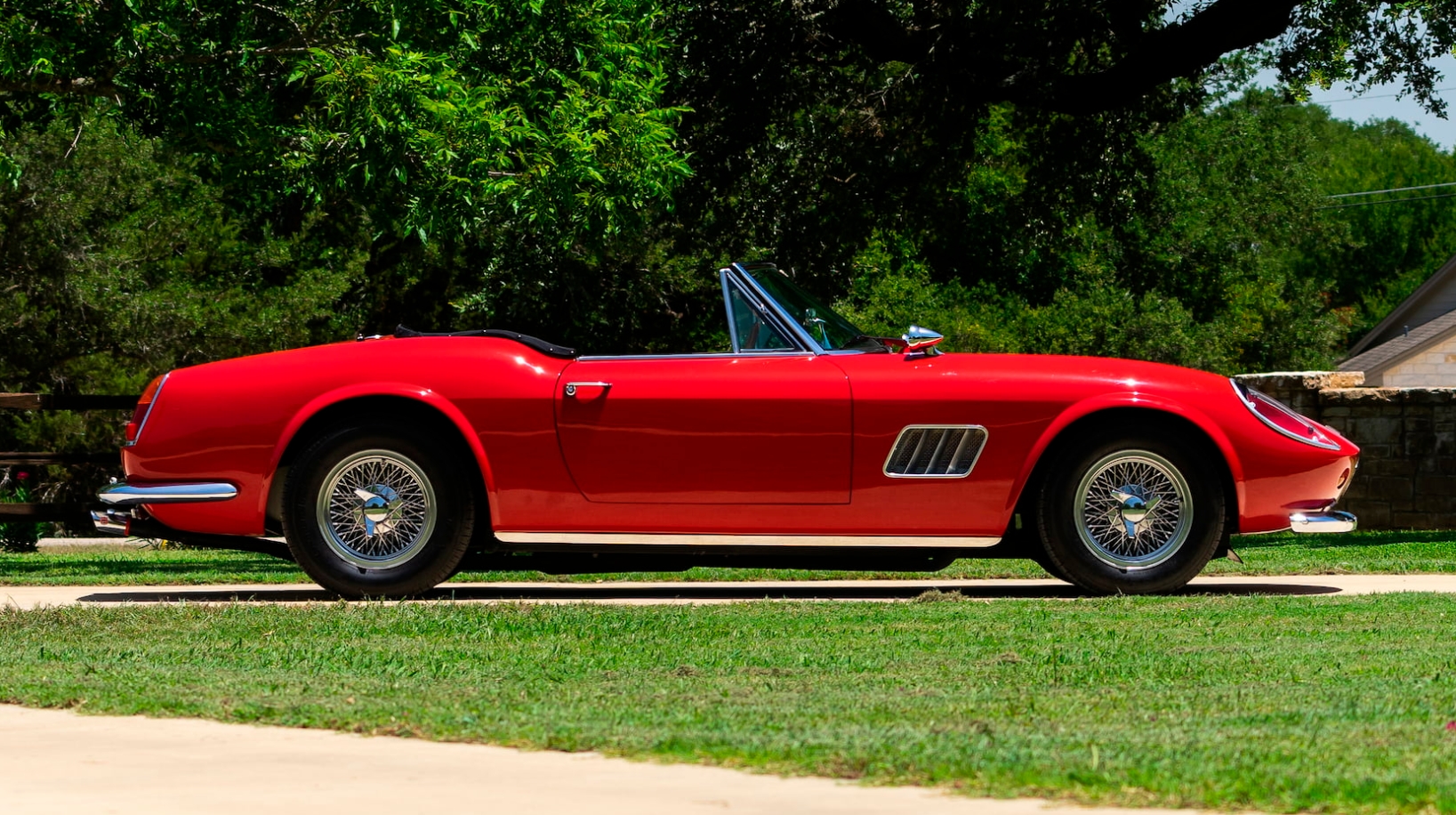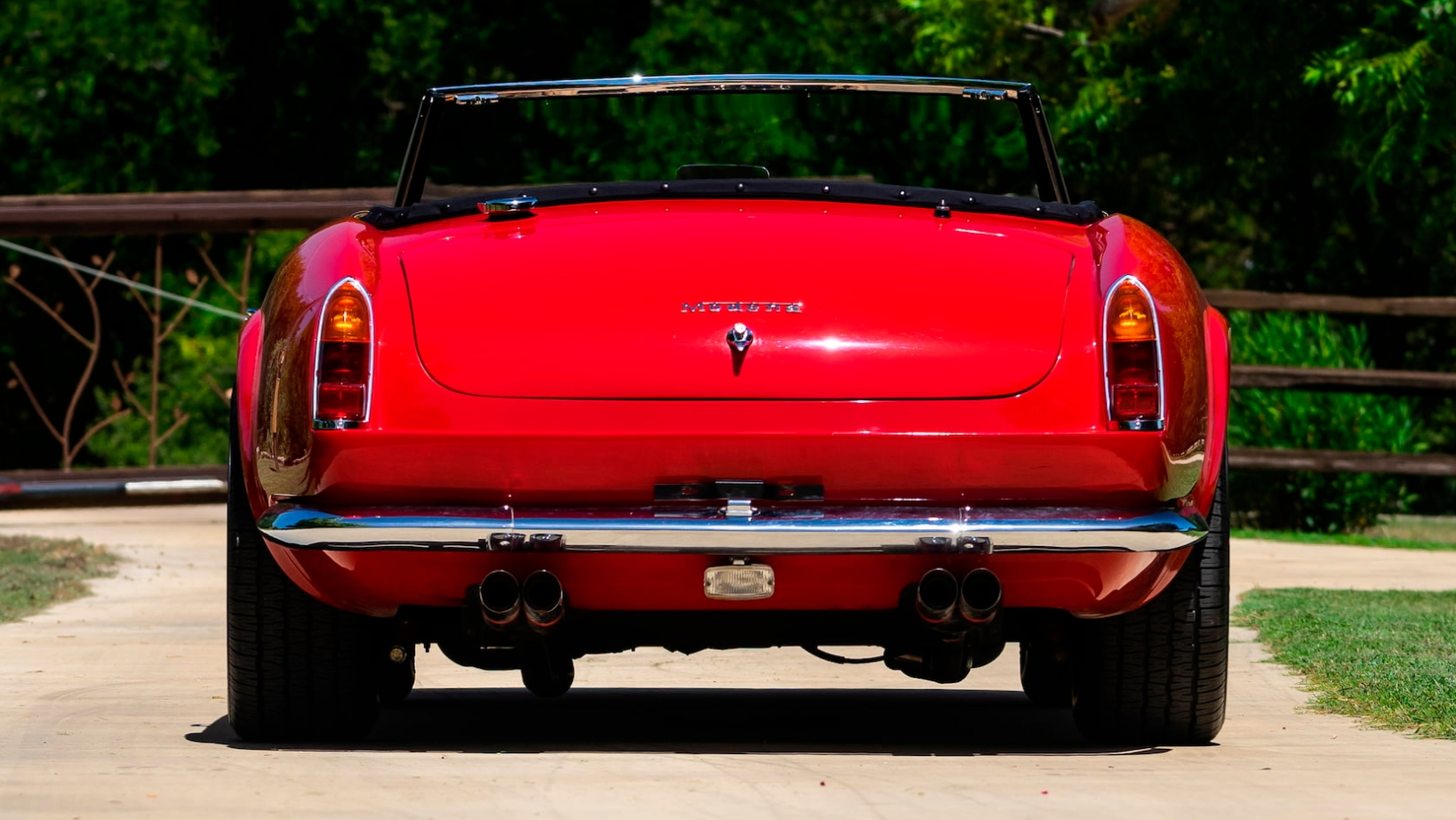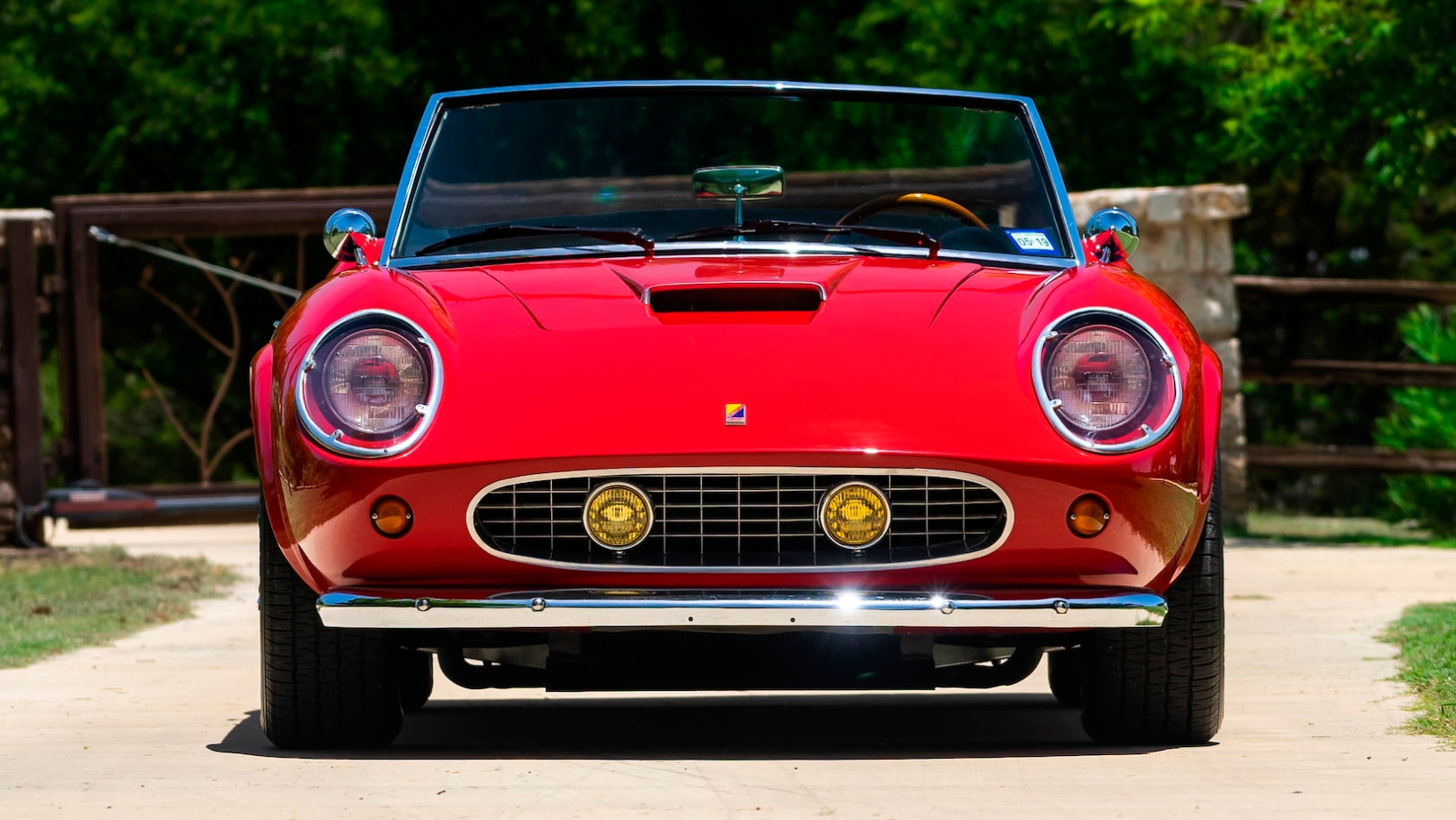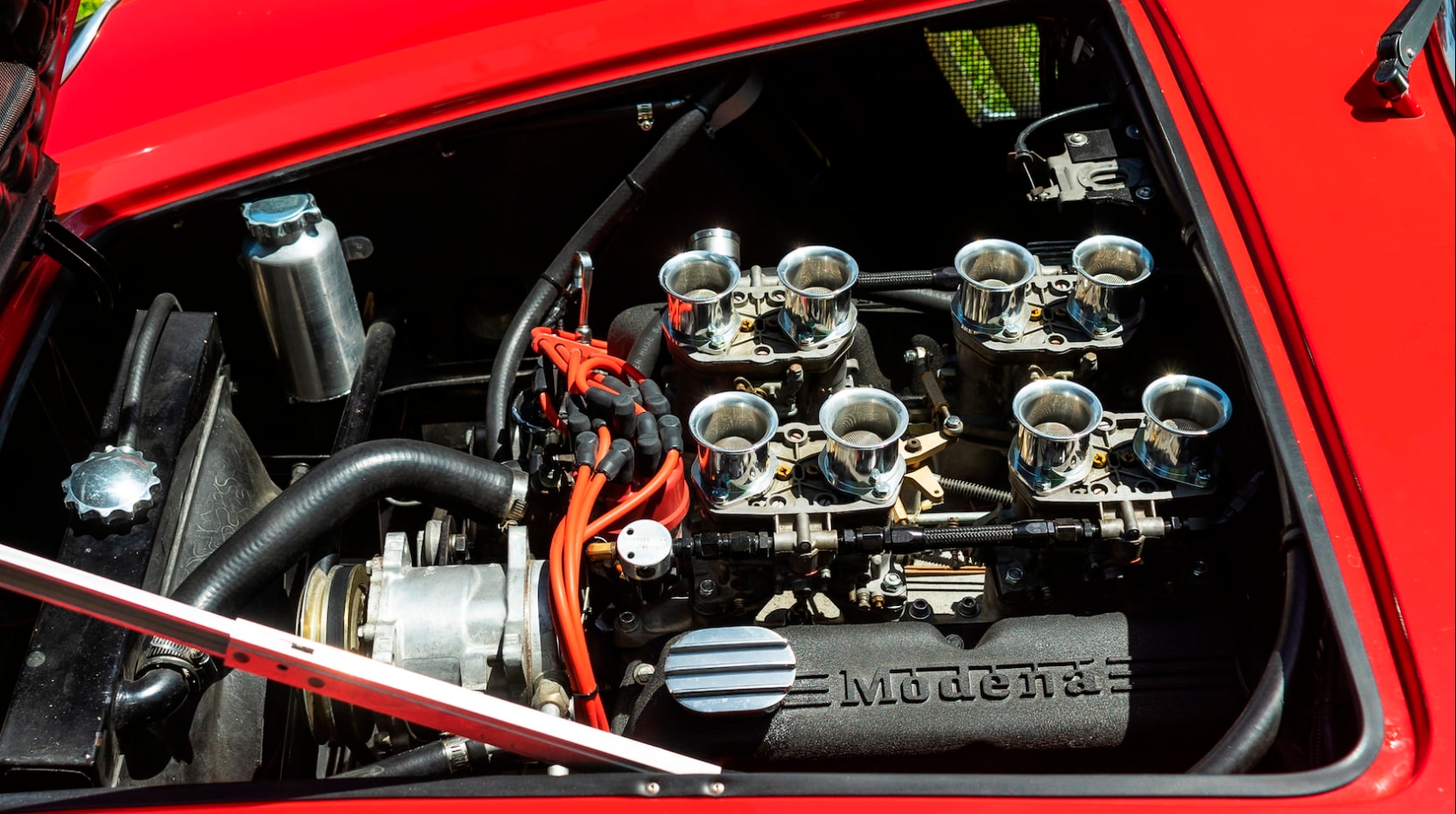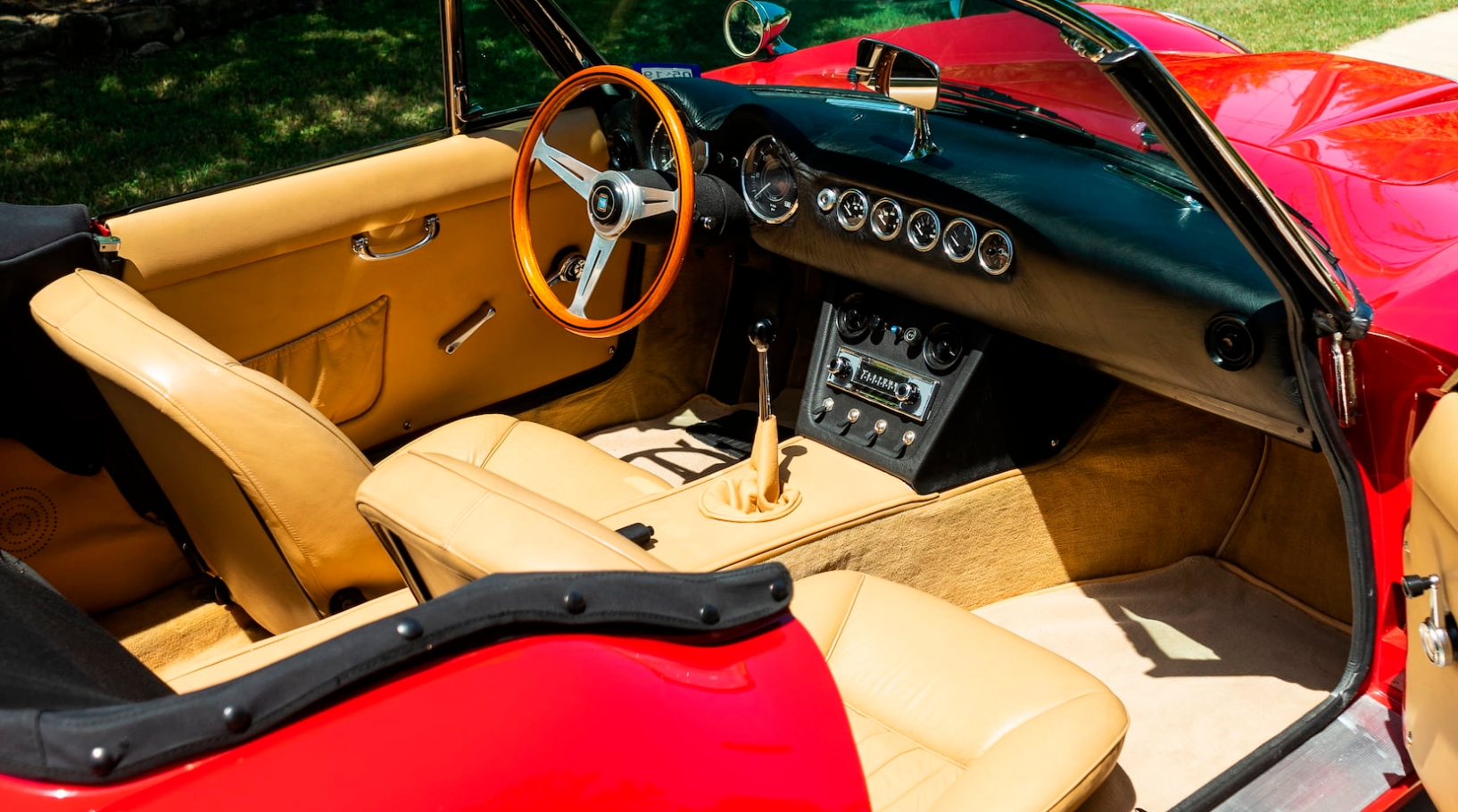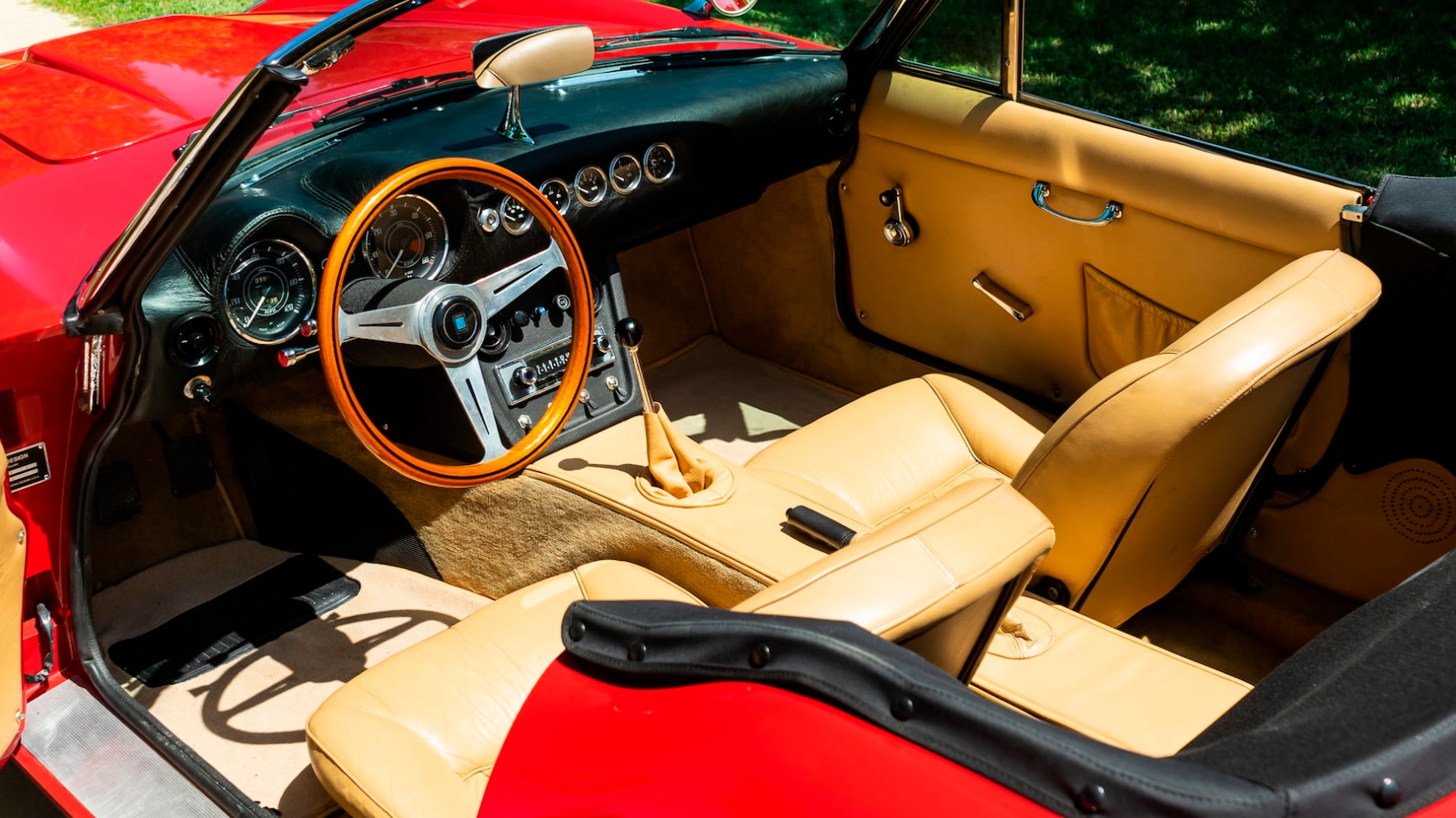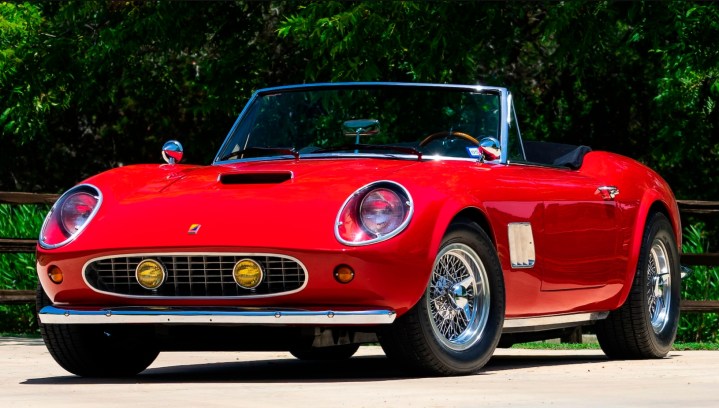
*cue Oh Yeah by Yello*
Remember that 1961 Ferrari 250 GT California that was the love and passion of Cameron Frye’s father, who spent three years restoring it? That is, until it ended up at the bottom of a ravine.
Thankfully, the star car wrecked from the classic 1980s teen flick Ferris Bueller’s Day Off wasn’t an actual 1961 Ferrari 250 GT California. Otherwise, that would’ve likely put the film way over budget and made the automaker very upset, among many others.
Instead, it was one of three replica cars built specifically for this movie and used for filming. And one of those cars will be hitting the Mecum Auctions later next August during the 2018 Monterey Car Week.
Built by Modena Design and Development out of El Cajon, California, Paramount Studios commissioned the firm to build the movie cars, which resulted in the 1985 Modena GT Spyder California, as they called it.
Led by president of Modena Design Neil Glassmoyer and partner Mark Goyette, the cars featured custom-fabricated steel-tube frames designed by Bob Webb and built by David Turley, based off of a pre-existing MG model. Then Glassmoyer and Goyette penned and built the fiberglass bodywork. Glassmoyer also says he took extra efforts to incorporate Ferrari-style design cues to make the cars as accurate as possible, such as the raked windshield, exposed turn signals, hood scoops, oval grille, and fender vents.
But it didn’t stop there as movie cars weren’t just stationary props, either. The interior was also completely outfitted to replicate the cockpit of the GT California, from the classy analog gauges mounted on the center portion of the dashboard to the simple and classic switchgear.
Under the hood sits a custom 5.0-liter V8, supposedly from Ford, along with a Ford-sourced C4 three-speed automatic. The engine was fitted with four downdraft carburetors and black-painted valve covers to mimic the look of the original Ferrari’s Colombo V12.
While a total of three were built, one was a rolling chassis, which as you can imagine, is the one that Cameron kicked off of the floor jack, sending his father’s prized possession into the depths below.
The example heading to Mecum Auctions recently underwent a nine-month restoration before showing up on its website. Accompanying the auction upon closing will be a stack of full documentation regarding the car’s history, along with other film memorabilia.
